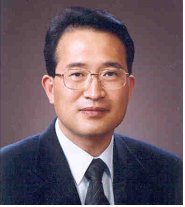The Korea Customs Service pledged to tighten its grip on smuggling, tax evasion and illegal foreign exchange trading in step with the Park Geun-hye administration’s policy direction.
“The KCS will back the government’s economic and welfare policies by securing the necessary tax revenues,” said new KCS Commissioner Baek Un-chan on Friday.
“The KCS will back the government’s economic and welfare policies by securing the necessary tax revenues,” said new KCS Commissioner Baek Un-chan on Friday.

This was one of the first official remarks on the agency’s policy made by the new customs chief since he took office on March 18.
The office also kicked off a special task force Wednesday to monitor the underground economy and to expose the hidden tax resources.
The corresponding team will focus on regulating firms which attempt to evade taxation by abusing their corporate governance, those involved in illicit foreign exchange trading, and those which smuggle high-tax items such as agricultural goods and precious metals.
It will also ensure that traders do not falsify the countries of origin to take advantage of effectuated free trade agreements, according to officials.
“We thus expect to secure at least 1.5 trillion won ($1.3 billion) of extra tax revenues per year,” said a KCS official.
The office estimates that around 4.7 trillion won in taxes are evaded annually.
The KCS also set to establish a system to track down on tax dodgers and to reinforce the disciplinary measures on them, officials said.
The so-called underground economy refers to business and economic activities, legal or illegal, which are not covered by official statistics. Examples are frequently observed in the construction and service sectors, as well as gambling and prostitution.
The term rose as Park’s key economic slogan late last year and soon replaced “economic democratization,” which stressed the regulations on the upper bracket and conglomerates.
The shift was taken as an indication that her administration would focus on discovering omitted tax revenues, rather than directly increasing taxes or reducing tax cuts for conglomerates.
By Bae Hyun-jung (tellme@heraldcorp.com)
-
Articles by Korea Herald








![[LLG] Unseen inheritance: Trauma of transnational adoption 'trickles down' to adoptees' children](http://res.heraldm.com/phpwas/restmb_idxmake.php?idx=644&simg=/content/image/2024/05/12/20240512050141_0.jpg&u=20240512163544)
![[KH Explains] Hyundai Motor’s plan for new landmark keeps hitting bumps](http://res.heraldm.com/phpwas/restmb_idxmake.php?idx=644&simg=/content/image/2024/05/13/20240513050626_0.jpg&u=20240513192803)









